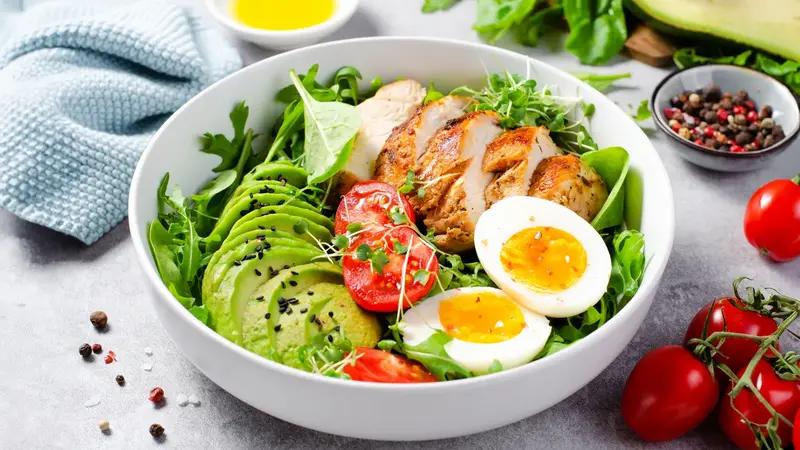Tips for Selecting Low-Calorie Foods for a Healthy Evening Meal
Pursuing a healthier lifestyle often involves making thoughtful dietary choices, especially when it comes to reducing caloric intake during dinner. The evening meal plays a crucial role in how your body processes food overnight and can impact overall well-being and weight management. This guide delves deeper into choosing the right low-calorie foods that are both nutritious and satisfying for your dinner.
Understanding Low-Calorie Foods
Low-calorie foods generally provide lesser energy per serving but are rich in essential nutrients. They typically boast high levels of water, fiber, or protein, all key components that help maintain a feeling of fullness. Selecting foods with these characteristics for your evening meal is vital in ensuring a satisfying yet health-conscious dinner.
The Importance of Low-Calorie Dinners
Opting for lower-calorie meals in the evening can significantly aid in maintaining a caloric deficit, which is essential for weight loss or management. Nutrient-dense but low-calorie dinners can prevent late-night overeating, support metabolic health, and improve sleep quality. Thoughtfully planned dinners contribute positively to your health targets and can enhance your quality of life.
Tips for Selecting the Best Low-Calorie Foods for Dinner
1.
Vegetable-rich Dishes
– Emphasize the inclusion of a range of vegetables like leafy greens, bell peppers, and zucchini. These not only add color and texture to your meal but are foundational in creating a voluminous, nutrient-packed dinner.
2.
Lean Protein Choices
– Focus on lean proteins such as chicken breast, tofu, or fish, which are low in fat and rich in proteins that foster satiety and support muscle maintenance and growth.
3.
Whole Grains for Sustenance
– Incorporating whole grains such as quinoa or brown rice is advisable. They provide necessary fiber and keep calorie counts manageable while stabilizing blood sugar levels.
4.
Embrace Beans and Legumes
– Adding beans and legumes enriches meals with high-quality plant-based protein and fiber, making them hearty and satisfying options for a low-calorie diet.
5.
Portion Control
– Be vigilant about portion sizes to avoid unintentional calorie surplus. Using smaller plates and visual cues for serving sizes can help in regulating portions adequacy.

6.
Mindful Cooking Methods
– Adopt cooking techniques like steaming, grilling, or baking, which require less or no added fat compared to frying. This strategy is essential in reducing overall calorie intake.
7.
Healthy Sauces and Dressings
– Flavor dishes using spices and herbs rather than relying on heavy, calorie-laden sauces. Opt for low-fat or homemade alternatives when sauces or dressings are desired.
8.
Stay Hydrated
– Drinking adequate water can help differentiate between hunger and thirst, potentially preventing overeating. Stay hydrated to support digestion and overall health.
Examples of Low-Calorie Dinners
Let’s explore some concrete low-calorie dinner suggestions that embody nutritive and delicious meal planning:
Grilled Lemon Herb Chicken with Quinoa Salad
This dish blends the refreshing zest of lemon with herbed chicken, alongside a quinoa salad studded with cherry tomatoes and cucumbers—a wholesome meal that’s both flavorful and light on calories.
Stuffed Bell Peppers
Bell peppers filled with a hearty mixture of black beans, corn, diced tomatoes, and spices, with a sprinkle of cheese for that final flavor flair— a visually appealing and satisfying dinner option.
Zucchini Noodles with Tomato Basil Sauce
Spiralized zucchini topped with a vibrant tomato basil sauce offers a fulfilling yet low-calorie alternative to traditional pasta dishes, enhanced with a touch of Parmesan.
Baked Salmon with Asparagus
Seasoned salmon fillets, baked and served with lightly roasted or steamed asparagus, make for a nutrient-rich, low-calorie dinner that is simple yet elegant.
Vegetable Stir-Fry
A dynamic stir-fry featuring a medley of vegetables such as broccoli, carrots, and snap peas, combined with tofu and lightly seasoned, paired with a modest portion of brown rice.
Monitoring Your Progress
Beyond selecting nourishing, low-calorie foods, tracking your dietary intake and progress is crucial in any healthy eating plan. Keeping a detailed food diary helps monitor what, how much, and when you eat, providing insights into your eating habits and aiding in continued weight management.
Conclusion
Adopting a diet centered on low-calorie, nutrient-dense foods for dinner doesn’t necessitate sacrificing taste or satisfaction. By employing strategic food choices and cooking methods, you can indulge in rich, diverse flavors while nourishing your body and advancing toward your health goals. A well-rounded diet coupled with a positive outlook forms the cornerstone of a sustainable, healthy lifestyle.
 6. Mindful Cooking Methods
– Adopt cooking techniques like steaming, grilling, or baking, which require less or no added fat compared to frying. This strategy is essential in reducing overall calorie intake.
7. Healthy Sauces and Dressings
– Flavor dishes using spices and herbs rather than relying on heavy, calorie-laden sauces. Opt for low-fat or homemade alternatives when sauces or dressings are desired.
8. Stay Hydrated
– Drinking adequate water can help differentiate between hunger and thirst, potentially preventing overeating. Stay hydrated to support digestion and overall health.
6. Mindful Cooking Methods
– Adopt cooking techniques like steaming, grilling, or baking, which require less or no added fat compared to frying. This strategy is essential in reducing overall calorie intake.
7. Healthy Sauces and Dressings
– Flavor dishes using spices and herbs rather than relying on heavy, calorie-laden sauces. Opt for low-fat or homemade alternatives when sauces or dressings are desired.
8. Stay Hydrated
– Drinking adequate water can help differentiate between hunger and thirst, potentially preventing overeating. Stay hydrated to support digestion and overall health.
